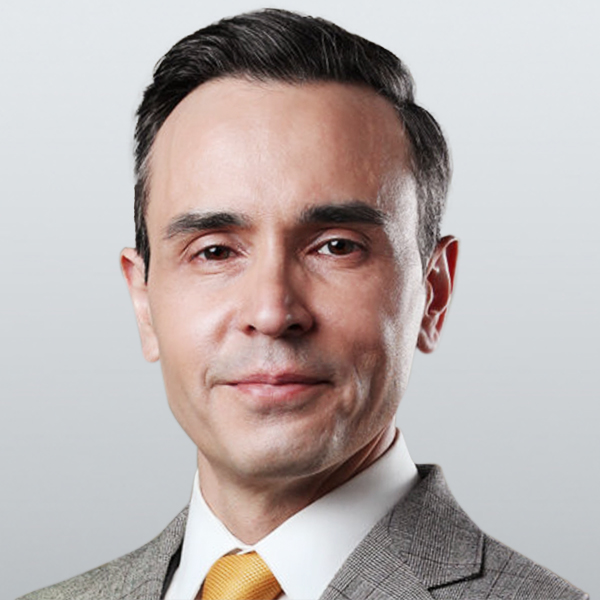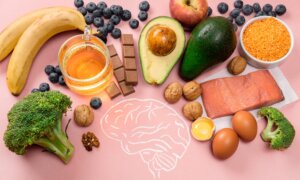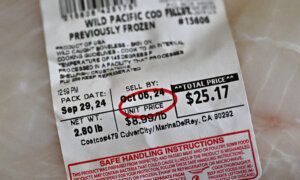There’s no shortage of health information online. Many claim to have found the key to health through various diets or lifestyle regimens. But often, the differing opinions contradict each other, leaving many overwhelmed and uncertain about how to improve their health.
But the answer may not be as complicated as we think. What if it were possible to eliminate most of society’s chronic diseases, like cancer, diabetes, and heart disease, through fundamental changes to the way we live?
Dr. David L. Katz thinks that is possible. In an EpochTV episode of “Vital Signs,” host Brendon Fallon interviews Katz, a Yale graduate whose career specializations include public health and internal, preventive, and lifestyle medicine.
Eliminate 80 Percent of Diseases
People die every day, but do we know what they die of? The death certificate may say heart failure, but what caused the heart failure?
On “Vital Signs,” Katz cited an eye-opening research paper he came across early in his career about the root causes of death in the United States. The authors identified 10 factors that explain nearly all of the premature deaths that occur in the country every year. Katz said that three of the factors—tobacco, poor diet, and lack of physical activity—account for 80 percent of deaths and chronic diseases.
The paper sparked Katz’s interest in learning more. He said understanding the root cause of death may provide the answer to how we can reduce our risk of premature death and eliminate a vast portion of chronic diseases worldwide.
Diet Over DNA
While Katz recommends avoiding tobacco and increasing exercise, the third item on the list may be the most important for health today.
According to research cited by Harvard Medical School, improving diet could prevent more than 400,000 deaths yearly.
Although genetics may play a role in some diseases, Katz said that diet usually has more of an impact than DNA. Thankfully, he believes achieving a healthy diet can be simpler than we think. Avoiding overeating and including plants sums up the basic rules to eat by.
Katz said we don’t have to overcomplicate our diets, adding that we can easily identify what any creature should eat by observing what it eats in the wild. Humans are no different. Historically, humans have eaten plenty of wild game and wild plants.
Early human beings lived in hunter-gatherer societies and were foragers. Depending on geographical location, the specific food types of the diet may differ. However, the fundamental formula stays the same.
Real Over Processed
Katz says to focus on eating real food—often only one word long—such as apples, meat, or carrots.
Another rule of thumb is to eat food that contains natural ingredients rather than chemicals.
For example, the ingredient labels of highly processed junk foods contain long lists of chemical names, texturizers, emulsifiers, artificial colors, and artificial flavors, such as the preservative sodium benzoate or the flavor enhancer disodium inosinate.
Katz also stated that eating raw food isn’t always more nutritious. In some cases, cooking food enhances its nutrition because it makes it more bioavailable to the human digestive system.
For example, Katz said that the compound in tomatoes that makes them red is lycopene. Lycopene is an antioxidant associated with better eye, prostate, and cardiovascular health, among other benefits. However, lycopene is fat-soluble, meaning that it is absorbed better when paired with fat. Since tomatoes don’t contain much fat, eating raw tomatoes makes it harder for the body to absorb and access this valuable nutrient. Katz said that this can be remedied by cooking tomatoes with a source of fat such as olive oil.
Beware of Diet Hype
The “Vital Signs” episode addressed many controversial food topics, including the benefits of meat versus plants, whether beans are healthy or harmful, and what type of fish is safe to eat, given the environmental toxins they are exposed to.
Katz said it is less about the type of meat or plant and more about the quality. Understanding the conditions in which our food is made or raised helps us choose the best quality of real foods.
For example, beef from cattle today contains much higher levels of saturated fat than red meat from game like our ancestors ate. He said grass-fed beef over grain-fed beef is slightly better, but wild-game meat such as venison (deer) is a leaner, healthier alternative.

Dr. David Katz highlights which type of meat is healthiest in "<span style="font-weight: 400;">Cut Disease Risk Through Diet"</span> on "<span style="font-weight: 400;">Vital Signs" with Brendon Fallon.</span>
The interview also covered whether carbohydrates harm our health. Katz explained that many healthy foods contain carbohydrates, including fruits and vegetables. He said bad actors like processed ingredients are what we should avoid.
Instead of focusing on general food components like carbohydrates, sugar, fat, and so forth, Katz suggests focusing on real food, such as berries, beans, or unprocessed meat. Deli meats contain artificial chemicals and additional nitrates.
To learn how to offset the pesticide risk of certain fruits and vegetables, and how to cut the gas and bloating effects of beans and lentils, tune into the episode “Cut Disease Risk Through Diet”
Katz cautioned against following absolutist diets often promoted on social media. For example, vegan and vegetarian diets completely rule out meat, while the carnivore diet eliminates vegetables. Katz advised including a variety of healthy foods in your diet but suggested introducing your microbiome to new foods gradually. This may help avoid bloating and digestive issues and allow your body time to adapt.















